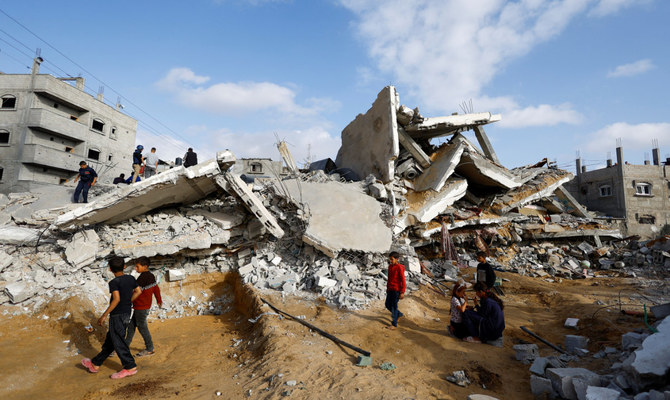
Every event is connected in the Palestine-Israel conflict. The more Israel tightens the repressive noose on the Palestinians in Gaza, the more the civilian resistance there empowers Hamas. Hamas profits from the conflict, while the Palestinian Authority (PA), the Palestinian government operating out of Ramallah, continues to appear weak and feeble.
Tensions are again flaring between Israel and the Palestinians and the two sides are drifting toward another conflict. The epicenter is once again the Gaza Strip, where Hamas and Israel are facing off militarily.
The only thing stopping Israel launching another massive wave of attacks against Palestinian targets is the turmoil in Israel’s political system. Right-wing Prime Minister Benjamin Netanyahu has lost his mandate, having now twice failed to win an election this year, and is incapable of forming a new government.
The political ball is now in the court of Netanyahu’s rival, Benny Gantz, of the Blue and White alliance, who is negotiating with other parties, including the Arab Joint List, in a bid to form a majority coalition. As they negotiate, the Arab Knesset members will be reluctant to forcefully speak out against Israel’s military actions against Gaza, such as the deadly attackthat took place on Saturday.
The time is ripe for another bloody and vicious conflict, in which Hamas fires mostly ineffective and impotent homemade missiles wildly toward Israel, with most landing harmlessly in the desert. This then gives Israel’s military the “justification” to respond with heavily disproportionate force. In the past, its responses have been everything from massive air and missile strikes to an all-out invasion.
But there are ways to both ease the tension with Gaza and undermine the power of Hamas. One involves easing the embargo on Gaza for the benefit of the civilians who live with severe restrictions on water, electricity and their movement. Another would be re-empowering the PA and President Mahmoud Abbas, who is surrounded by governmental incompetence and a cacophony of confusing, emotional voices.
The PA government is dysfunctional, which I saw first-hand when I covered September’s UN General Assembly (UNGA). I witnessed Abbas and his delegation receive strong words of support from the majority of the heads of state and other speakers. They spoke powerfully in support of the rights of the Palestinians to freedom and statehood. But their clarion call went unanswered by Abbas and his delegation, which consisted of a 23-member entourage that seemed to do little except surround the president, keeping him away from others, including the news media.
Right now, Abbas is weak. He is treated disrespectfully, mostly as a result of his inability to command deference. But it is not about Abbas as a person, it is about the office of the president of Palestine. The office needs to be empowered and one of Abbas’ priorities should be to re-instill that power.
Right now, Abbas is weak. He is treated disrespectfully, mostly as a result of his inability to command deference.
Ray Hanania
Yasser Arafat had that power. He was a historically powerful leader who almost singlehandedly lifted the Palestinian people out of obscurity, ending claims that they did not exist. Arafat, through the revolution he led, forced the world to see the Palestinians not just as refugees, but as a people whose legal and moral rights were being unjustly denied.
Arafat, who died 15 years ago next week, was a larger-than-life hero to his people. His vilification by haters in the Jewish, Zionist and Israeli communities was testament to his influence. These were the same haters who cheered the murder of his peace partner, Israeli Prime Minister Yitzhak Rabin, who was assassinated by a political disciple of Israel’s far-right leaders like Ariel Sharon and Netanyahu.
Abbas may not be able to fill Arafat’s hugely inspiring shoes, but he should be able to stand shoulder to shoulder with the region’s decision-makers. As long as Abbas and the PA are weak, or perceived as weak, Hamas will remain a potent political force. Empowering Abbas will empower the Palestinian national cause and expose Israel’s policies as illegal.
Hamas is more than just a “terrorist organization,” as asserted by its foes. It is, more importantly, a political and social force that has a following. If there is going to be peace, the brokers will need to find a strategic and effective means to undermine Hamas’ current standing.
Ray Hanania is an award-winning former Chicago City Hall political reporter and columnist. He can be reached on his personal website at www.Hanania.com. Twitter: @RayHanania
Disclaimer: Views expressed by writers in this section are their own and do not necessarily reflect Arab News" point-of-view












